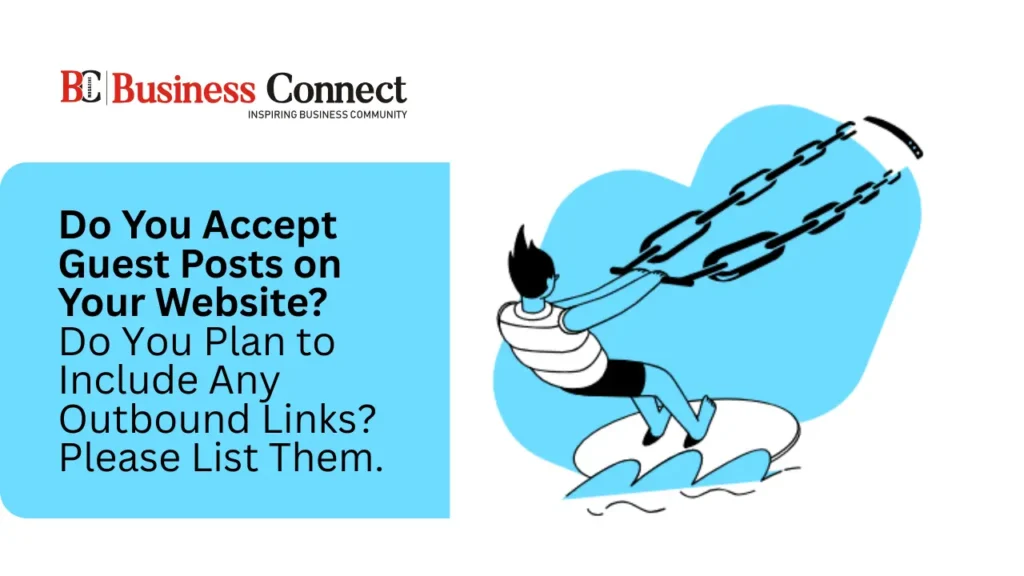If you’re planning to submit a guest post, you might come across this common editorial question:
“Do you plan to include any outbound links? Please list them.”
While it may seem like a simple request, it actually plays a crucial role in content quality, SEO integrity, and the editorial approval process. In this blog, we’ll explain what outbound links are, why editors ask about them, and how to handle them smartly in your guest post submissions.
What Are Outbound Links?
Outbound links (also called external links) are hyperlinks that point from your article to a different website. These could include:
A source or reference you’re citing
A useful tool or resource for readers
A link to your own blog, business, or social profile (when relevant)
Example:
“In a recent Google Search Central update, user experience was emphasized as a core ranking factor.”
Why Editors Ask for a List of Outbound Links
When editors request a list of outbound links in advance, they’re looking for transparency and quality control. Here’s why:
1. To Check Relevance
Editors want to ensure that your links add value to the reader and are contextually appropriate.
2. To Prevent Spam
Outbound links to irrelevant or low-quality sites can damage the host website’s reputation and SEO health.
3. To Comply with Google’s Guidelines
Search engines penalize websites for unnatural or manipulative link schemes. Editors want to make sure your links aren’t part of a “link-building-for-SEO” ploy.
4. To Decide on No-Follow vs. Do-Follow
Depending on the site’s policies, editors may allow certain links to pass link equity (do-follow), while others might be tagged as no-follow for safety.
Best Practices for Including Outbound Links in Guest Posts 2025
To increase your chances of approval and improve your content’s value, follow these tips:
1. Use High-Authority, Trusted Sources
Link to websites that are reliable, secure, and well-known (e.g., official publications, government sites, research journals).
2. Limit Self-Promotional Links
If you’re linking to your own website or business, make sure it’s:
Highly relevant to the topic
Natural within the content
Not overly promotional
3. Avoid Affiliate or Spammy Sites
Never include links to:
Gambling, adult, or pharma-related sites
Low-quality blogs or link farms
Sites with excessive ads or pop-ups
4. Keep It Transparent
Always declare your outbound links upfront when pitching or submitting a post. A simple format works:
Outbound Links List:
https://yourwebsite.com/productivity-guide — Linked in paragraph 3 as a relevant resource on time management
https://statista.com — Referenced for statistical data in paragraph 5
Sample Response to the Question
Yes, I plan to include two outbound links in the article:
https://yourcompany.com – A relevant guide on startup fundraising (linked naturally in context).
https://hubspot.com – A marketing tool I mention in the list of resources.
Both links are relevant, non-promotional, and add value to the reader.
Final Thoughts
So next time you’re asked, “Do you plan to include any outbound links? Please list them,” remember—it’s not just a formality. It’s about building trust, ensuring editorial quality, and keeping search engines happy.
✅ Be honest
✅ Keep your links relevant
✅ Focus on value, not just SEO
By doing so, you’ll increase your chances of getting your guest post published and appreciated.
Want to pitch a guest post to Business Connect Magazine or similar high-authority websites?
Make sure your outbound link strategy is clean, ethical, and value-driven.
📧 Need help writing or editing your guest article? Let’s connect!
Add Business Connect magazine to your Google News feed






